Keynotes for IEEE CIC/CogMI/TPS
Day 1: Monday, Dec. 13rd, 2021
Real-Time Edge AI
Monday, Dec. 13rd, 2021 (US EST, GMT-5) 10:40am - 11:40am (US EST, GMT-5) Zoom Meeting
Tarek Abdezaher
ACM Fellow, IEEE Fellow, Sohaib and Sara Abbasi Professor of CS and Willett Faculty Scholar, UIUC
Home Page
Abstract: Advances in neural network revolutionized modern machine intelligence, but important challenges remain when applying these solutions in IoT contexts; specifically, in cost-sensitive applications on lower-end embedded devices. The talk discusses challenges in offering real-time machine intelligence services at the edge to support applications in resource constrained environments. The intersection of IoT applications, real-time requirements, and AI capabilities motivates several important research directions. For example, how to support efficient execution of machine learning components on low-cost edge devices while retaining inference quality and offering confidence estimates in results? How to reduce the need for expensive manual labeling of IoT application data? How to improve the responsiveness of AI components to critical real-time stimuli in their physical environment? How to prioritize and schedule the execution of intelligent data processing workflows on edge-device GPUs? How to exploit data transformations that lead to sparser representations of external physical phenomena to attain more efficient learning and inference? The talk discusses recent advances and presents evaluation results in the context of different real-time edge AI applications.
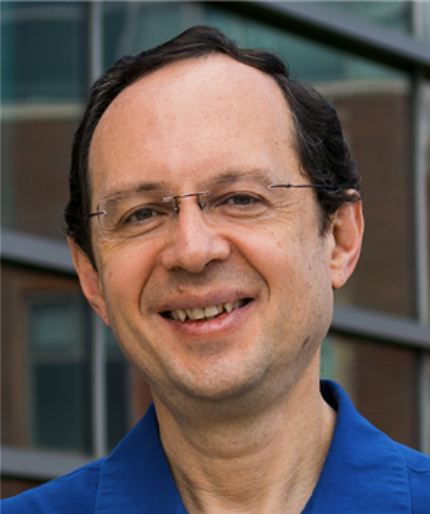
Bio: Tarek Abdelzaher received his Ph.D. in Computer Science from the University of Michigan in 1999. He is currently a Sohaib and Sara Abbasi Professor and Willett Faculty Scholar at the Department of Computer Science, the University of Illinois at Urbana Champaign. He has authored/coauthored more than 300 refereed publications in real-time computing, distributed systems, sensor networks, and control. He serves as an Editor-in-Chief of the Journal of Real-Time Systems for over 10 years, and has served as Associate Editor of the IEEE Transactions on Mobile Computing, IEEE Transactions on Parallel and Distributed Systems, IEEE Embedded Systems Letters, the ACM Transaction on Sensor Networks, and the Ad Hoc Networks Journal, among others. Abdelzaher's research interests lie broadly in understanding and influencing performance and temporal properties of networked embedded, social and software systems in the face of increasing complexity, distribution, and degree of interaction with an external physical environment. Tarek Abdelzaher is a recipient of the IEEE Outstanding Technical Achievement and Leadership Award in Real-time Systems (2012), the Xerox Award for Faculty Research (2011), as well as several best paper awards. He is a fellow of IEEE and ACM.
Enabling a rich and trustworthy nexus of AI and IoT
Monday, Dec. 13rd, 2021 (US EST, GMT-5) 1:50pm – 2:50pm (US EST, GMT-5) Zoom Meeting
Mani Srivastava
ACM Fellow, IEEE Fellow, Professor, UCLA
Home Page
Abstract: The previously discrete technologies of IoT and AI have now entered a tight virtuous embrace. On the one hand, IoT allows sensing and actuation of our physical, social, and urban spaces with previously unimaginable ubiquity. On the other hand, AI allows sophisticated inferences and decisions to be made algorithmically even from unstructured and high-dimensional data with uncanny performance.Together they promise sophisticated perception-cognition-action loops for pervasive autonomy and just-in-time adaptive interventions that will deeply impact many application domains. This talk examines some of the unique challenges and opportunities that lie at the emerging AI-IoT nexus. For IoT engineers, AI is both a challenging workload requiring rethinking how we design and manage IoT systems, and a tool that can be harnessed for better performance and robustness. For AI developers, IoT presents challenges arising from the coupling with humans and physical reality as well as opportunities from advances in IoT device hardware. By exploring questions relating to uncertain temporal information, dynamic sensing substrates, extreme resource constraints, adversarial environments, and complex event detection, the talk will provide a perspective on how AI-driven IoT can be trusted, capable, and performant.
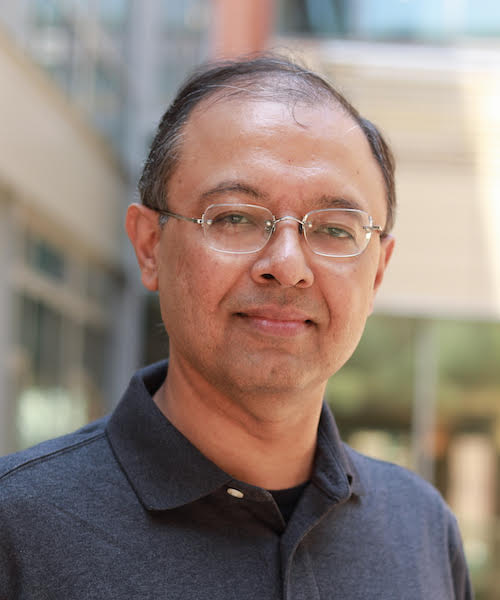
Bio: Mani Srivastava is on the faculty at UCLA where he is associated with the ECE Department with a joint appointment in the CS Department. His research is broadly in the area of human-cyber-physical and IoT systems that are learning-enabled, energy-efficient, secure, privacy-aware, and application-driven. It spans problems across the entire spectrum of applications, architectures, algorithms, and technologies in the context of systems and applications for mHealth, sustainable buildings, and smart built environments. He is a Fellow of both the ACM and the IEEE, and his research has been recognized by multiple Best Paper Awards and the 10-Year Impact Award at the ACM International Symposium on Wearable Computing. More information about his research is available at his lab’s website: http://www.nesl.ucla.edu and his Google Scholar profile at https://scholar.google.com/citations?user=X2Qs7XYAAAAJ.
Powering a quantum future through quantum circuits
Monday, Dec. 13rd, 2021 (US EST, GMT-5) 3:00pm - 4:00pm PM (US EST, GMT-5) Zoom Meeting
Jerry M. Chow
Director, Quantum Hardware System Development, IBM Quantum, T. J. Watson Research Center
Home Page
Abstract: As the field of quantum computing continues to mature, it becomes critical to drive progress in technologies for quantum computing systems through key metrics - scale, quality, and speed. Pushing on these dimensions enables us to achieve a path to quantum advantage in a practical frictionless fashion. I will overview the recent development of superconducting quantum computing systems and the technological advances by IBM that enabled us to scale superconducting qubits to our latest 127-qubit Eagle processor while also describing our efforts to continue improving the underlying quality of the devices, setting the foundational elements for our roadmap. I will also describe the efforts to expand the ecosystem through open source software with Qiskit, and appealing to a broad set of developers from hardware design all the way to applications research as we continue to drive a future for the consumption of quantum circuits.

Bio: Dr. Jerry M. Chow is the Director of the Quantum Hardware System Development at IBM, leading the effort to envision and implement IBM's quantum hardware systems roadmap through design, characterization, and system integration. His technical expertise is in the area of superconducting qubit quantum computing. Chow graduated magna cum laude with a BA in physics and MS in applied mathematics from Harvard University (2005) and subsequently a PhD in physics from Yale University (2010). He joined IBM as a Research Staff Member in 2010. In 2012 he was recognized in the Forbes 30 under 30 Technology list. In 2016 he co-lead the IBM Quantum Experience project, placing a real quantum processor accessible to anyone on the Cloud. In 2021, he was named an APS Fellow in the Division of Quantum Information.
Day 2: Tuesday, Dec. 14th, 2021
Network Analysis and Mining: Yesterday, today, tomorrow & beyond
Tuesday, Dec. 14th, 2021 (US EST, GMT-5) 10:40 am - 11:40 am (US EST, GMT-5) Zoom Meeting
Paolo Boldi
Professor, University of Milano, Italy
Home Page
Abstract: Network Analysis has been the treasure trove of data mining during the last decade. Why is it so important? What are the objects of study that this research area takes into consideration? what are the possible applications? and what are the algorithmic challenges involved? This talk will try to answer these basic questions, and at the same time to understand how and why the answers changed over time, and what we can expect from the future.
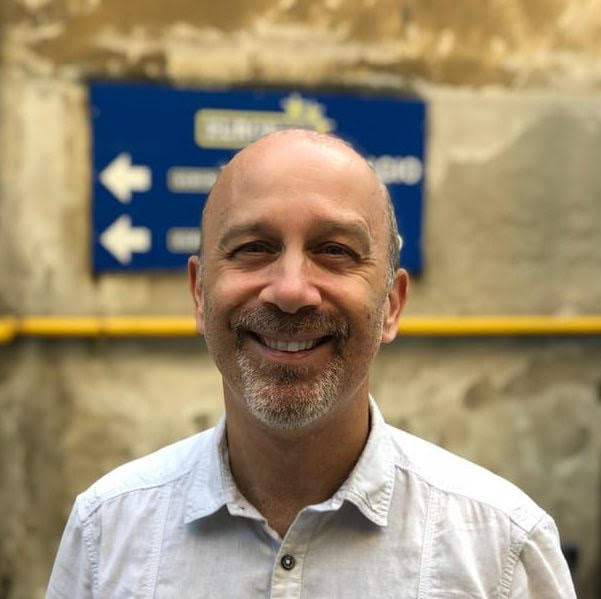
Bio: Paolo Boldi is full Professor at the Università degli Studi di Milano since 2015, where he is currently the co-ordinator of the PhD Program in Computer Science and of the Computer Science Degree. His main research topics are algorithms and data structures for big data, web crawling and indexing, graph compression, succinct and quasi-succinct data structures, distributed systems, anonymity and alternative models of computation. Recently, his works focused on problems related to complex networks (especially, the World-Wide Web, social networks and biological networks), a field where his research has also produced software tools used by many people working in the same area. He chaired many important conferences in this sector (e.g., WSDM, WWW, ACM WebScience), and published over one hundred papers; he was also recipient of three Yahoo! Faculty Awards and co-recipient of a Google Focused Award, and member of many EU research projects. He was keynote speaker at many conferences such as ECIR, SPIRE, MFCS, IIR and invited scholar at the Institut des Hautes Études Scientifiques.
Towards Safety and Security in Socio-Cyber-Physical Systems
Tuesday, Dec. 14th, 2021 (US EST, GMT-5) 11:45 am - 12:45 pm (US EST, GMT-5) Zoom Meeting
Naira Hovakimyan
Fellow and a life member of AIAA, IEEE Fellow, W. Grafton and Lillian B. Wilkins Professor, UIUC
Home Page
Abstract: Control theory and feedback techniques have seen many success stories with various safety-critical systems in recent years. However, as more and more cyber-physical systems appear in our daily life, safety and security of these systems – from the perspective of human’s perceptual and cognitive recognition – are becoming equally important. In the first part of the talk, we present an overview of L1 adaptive control and its combination with the recent tools from machine learning literature, and how it enables safety in autonomous systems, and discuss some of its success stories in the aerospace industry. In the second part of the talk, we present some of our recent results that explore human’s perceptual safety and how a machine can learn human expert’s actions for socially aware path planning. We will discuss ongoing research that addresses security in social networks using control-theoretic methods. We will wrap up with an open-ended question regarding how cognitive science can be integrated with control theory to build new system architectures.
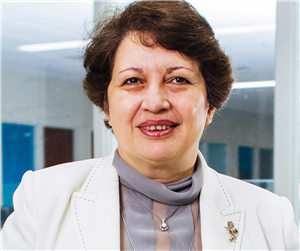
Bio: Naira Hovakimyan received her MS degree in Theoretical Mechanics and Applied Mathematics in 1988 from Yerevan State University in Armenia. She got her Ph.D. in Physics and Mathematics in 1992 from the Institute of Applied Mathematics of Russian Academy of Sciences in Moscow, majoring in optimal control and differential games. Before joining the faculty of UIUC in 2008, she spent time as a research scientist at Stuttgart University in Germany, French Institute for Research in Computer Science and Automation (INRIA) in France, Georgia Institute of Technology, and she was on faculty of Aerospace and Ocean Engineering of Virginia Tech during 2003-2008. She is currently a W. Grafton and Lillian B. Wilkins Professor of Mechanical Science and Engineering at UIUC. In 2015 she was named inaugural director for Intelligent Robotics Lab of Coordinated Science Laboratory at UIUC. She has co-authored two books, eleven patents and more than 450 refereed publications. She was the recipient of the SICE International scholarship for the best paper of a young investigator in the VII ISDG Symposium (Japan, 1996), the 2011 recipient of AIAA Mechanics and Control of Flight Award, the 2015 recipient of SWE Achievement Award, the 2017 recipient of IEEE CSS Award for Technical Excellence in Aerospace Controls, and the 2019 recipient of AIAA Pendray Aerospace Literature Award. In 2014 she was awarded the Humboldt prize for her lifetime achievements. In 2015 she was awarded the UIUC Engineering Council Award for Excellence in Advising. She is Fellow and life member of AIAA, a Fellow of IEEE, and a member of SIAM, AMS, SWE, ASME and ISDG. She is cofounder and chief scientist of IntelinAir. Her work in robotics for elderly care was featured in the New York Times, on Fox TV and CNBC. Her research interests are in control and optimization, autonomous systems, neural networks, game theory and their applications in aerospace, robotics, mechanical, agricultural, electrical, petroleum, biomedical engineering and elderly care.
On Deploying Secure Computation Protocols in Daily Business Applications
Tuesday, Dec. 14th, 2021 (US EST, GMT-5) 12:50 pm-1:50 pm (US EST, GMT-5) Zoom Meeting
Moti Yung
Security and Privacy Research Scientist, Google
Home Page
Abstract: The area of Secure Computation Protocols are the third generation of modern cryptography, where Symmetric Key Encryption was the first generation, and Public Key Cryptography was the second one. The area started with the Mental Poker protocol in the late 70s, has been a theoretical research area for 40 years, with more applied protocols in recent years. In this talk I will cover an effort that led to the first cryptographic protocols working routinely in business applications, employing secure computation (rather than the typical secure communication). I will argue why our time is technologically the right setting for adopting secure computation,and how we approached the deployment. The talk will explain the why and how, and also some of the technical developments that were needed to design the protocol to actual business needs and performance requirements, allowing two companies to compute on shared data results that are critical to business, while keeping the inputs otherwise mutually private.

Bio: Moti Yung is a Security and Privacy Research Scientist with Google. He got his PhD from Columbia University in 1988. Previously, he was with IBM Research, Certco, RSA Laboratories, and Snap. He has also been an adjunct senior research faculty at Columbia, where he has co-advised and worked with PhD students. His contributions to research and development treat science and technology holistically: from the theoretical mathematical foundations, via conceptual mechanisms, to applied cryptography, and to participation in developing actual industrial products. Yung is a fellow of the IEEE, the Association for Computing Machinery (ACM), the International Association for Cryptologic Research (IACR), and the European Association for Theoretical Computer Science (EATCS). In 2010 he gave the IACR Distinguished Lecture. He is the recipient of the 2014 ACM’s SIGSAC Outstanding Innovation award, and the 2014 ESORICS (European Symposium on Research in Computer Security). In 2018 he received the IEEE-CS W. Wallace McDowell Award. In 2020 he received the test-of-time award for a paper predicting ransomware co-authored in 1996 in IEEE’s Symp. on Security and Privacy; also in 2020 he received the IACR’s PKC conference test-of-time award for a paper he co-authored in 1998. In 2021 he received the IEEE-CS Computer Pioneer Award.
Day 3: Wednesday, Dec. 15th, 2021
How Technology Will Dictate Our Civic Future
Wednesday, Dec. 15th, 2021 (US EST, GMT-5) 11:00 am - 12:00 pm (US EST, GMT-5) Zoom Meeting
Latanya Sweene
Daniel Paul Professor, Harvard
Home Page
Abstract: Data-driven algorithms and technology designers are the new policymakers. No one elected them, and most people do not know their names, but the decisions they make dictate the code by which we conduct our daily lives and govern our country. Challenges to the privacy and security of our personal data were part of the first wave of this change; as technology progresses, every demographic value and every law has come up for grabs and will likely be redefined by what technology does or does not enable. How will it all fit together or fall apart? This talk surveys unforeseen consequences and brainstorms on a way forward with new innovative technologies designed in the public interest. Examples include contact tracing and the election.

Bio: Professor of the Practice of Government and Technology at the Harvard Kennedy School and in the Harvard Faculty of Arts and Sciences, Editor-in-Chief of Technology Science, founder and director of both the Public Interest Tech Lab and the Data Privacy Lab, former Chief Technology Officer at the U.S. Federal Trade Commission, and Distinguished Career Professor of Computer Science, Technology and Policy at Carnegie Mellon University, Latanya Sweeney has 3 patents, more than 100 academic publications, and her work is explicitly cited in two U.S. regulations, including the U.S. federal medical privacy regulation (known as HIPAA). She is a recipient of the prestigious Louis D. Brandeis Privacy Award, the American Psychiatric Association's Privacy Advocacy Award, an elected fellow of the American College of Medical Informatics, and has testified before government bodies worldwide. She earned her PhD in computer science from MIT in 2001, the first Black woman to do so.
Orchestrating Change with Disinformation and Influence
Wednesday, Dec. 15th, 2021 (US EST, GMT-5) 12:10pm - 1:10pm (US EST, GMT-5) Zoom Meeting
Kathleen Carley
Professor, Carnegie Mellon University
Home Page
Abstract: As COVID swept the land, disinformation swept the internet. In some cases, that disinformation was a critical piece of an influence campaign aimed at orchestrating change, creating social divisions, or engineering hate. Sometimes these disinformation enabled influence campaigns had real physical outcomes such as people protesting or not wearing masks. In this talk the link between online harms, influence, and societal response is explored from a high dimensional network perspective. Data drawn from Covid and the 2020 election are used.
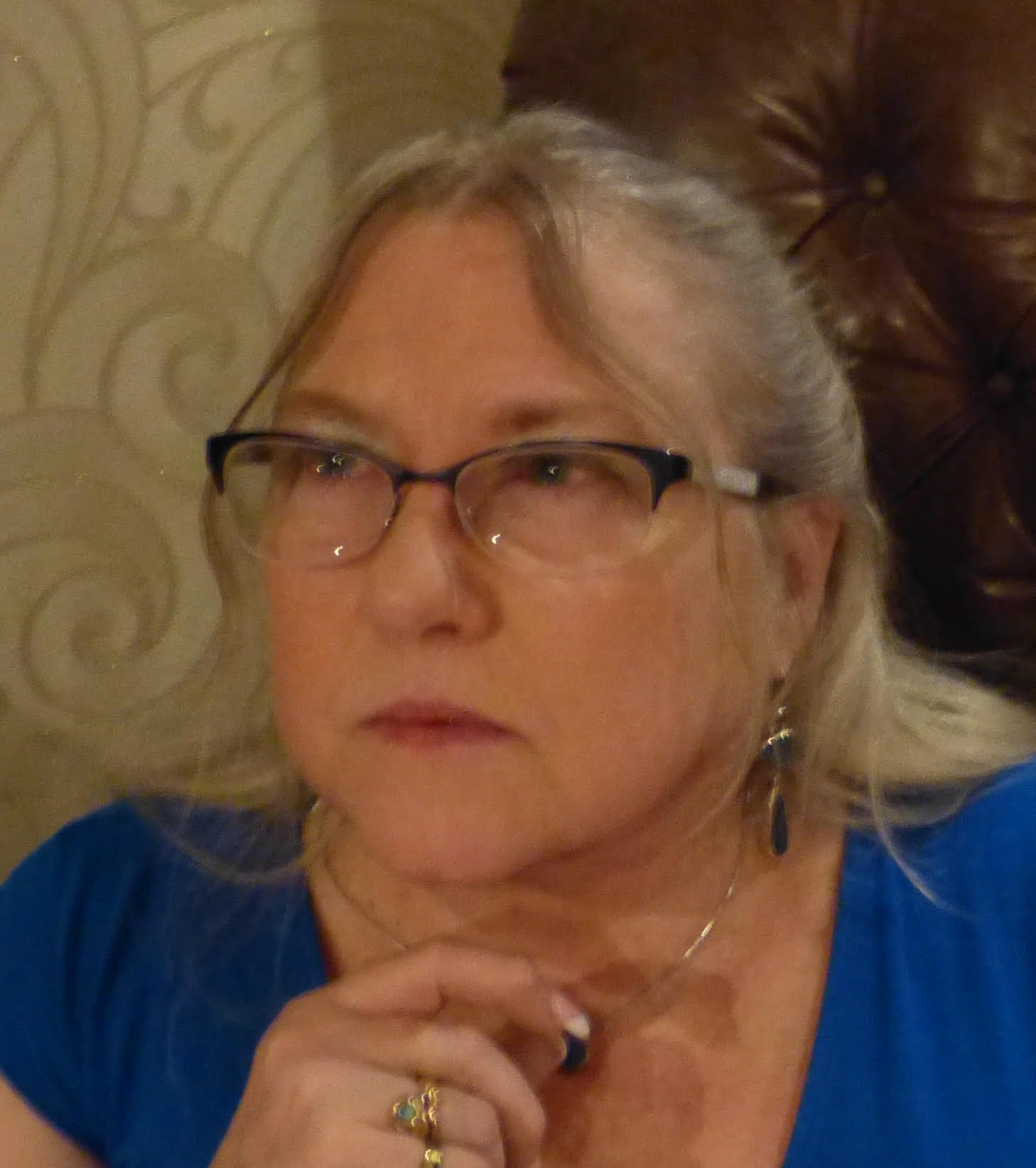
Bio: Kathleen M. Carley (H.D. University of Zurich, Ph.D. Harvard, S.B. MIT) is a Professor of Societal Computing, in the School of Computer Science’s Institute for Software Research at Carnegie-Mellon University; the Director of the Center for Computational Analysis of Social and Organizational Systems (CASOS), and the Director of the Center for Informed Democracy and Social Cybersecurity (IDeaS) which is the CMU center for disinformation, hate speech and extremism on line. She is also the CEO of Netanomics. Her research interests include applying computational social science, cognitive science, organization science, dynamic network analysis, social network analysis, machine learning, data analytics and text analytics to complex social and organizational problems such as social cybersecurity, disinformation, disease contagion, disaster response, and terrorism. She and her centers have developed infrastructure tools for analysing large scale dynamic networks, bot hunters, and various agent-based simulation systems.
Keynote for Special Session on Agriculture Cybersecurity
Cybersecurity in agriculture and food systems
Tuesday, Dec. 14th, 2021 (US EST, GMT-5) 4:00pm – 5:00pm (US EST, GMT-5) Zoom Meeting
Molly Jahn
Program Manager, DARPA
Professor, UW-Madison
Home Page
Abstract: Dr. Jahn will give an overview of risks in agriculture and food sysems that relate to cyber vulnerabilities, as a result of her work with insurance, finance and Governments on risk in food and agriculture systems.

Bio: Molly Jahn is currently a professor of Agronomy at the University of Wisconsin-Madison on loan to the US Department of Defense DARPA's Defense Sciences Office as a Program Manager where her work focuses on securing food systems, detecting adverse influences and risk management/mitigation in these complex systems. Formerly, she served as the 12th Dean of Agricultural and Life Sciences at UW Madison and Deputy and Acting Under Secretary of Agriculture. She teaches Systems Thinking, is the author of a series of repoerts on risk in food and agricultural sy stems, and consults broadly for Governments, multi-lateral organizations including the UN Office of Disaster Risk Reduction, philanthropy, finance and insurance, universities and companies. In 2020, she founded the Center for Food System Security at the University of Illinois Urbana-Champaign. She is Guest Faculty at the US Naval War College where she teaches in the Ethics of Emerging Military Technologies Program (www.jahnresearchgroup.net)